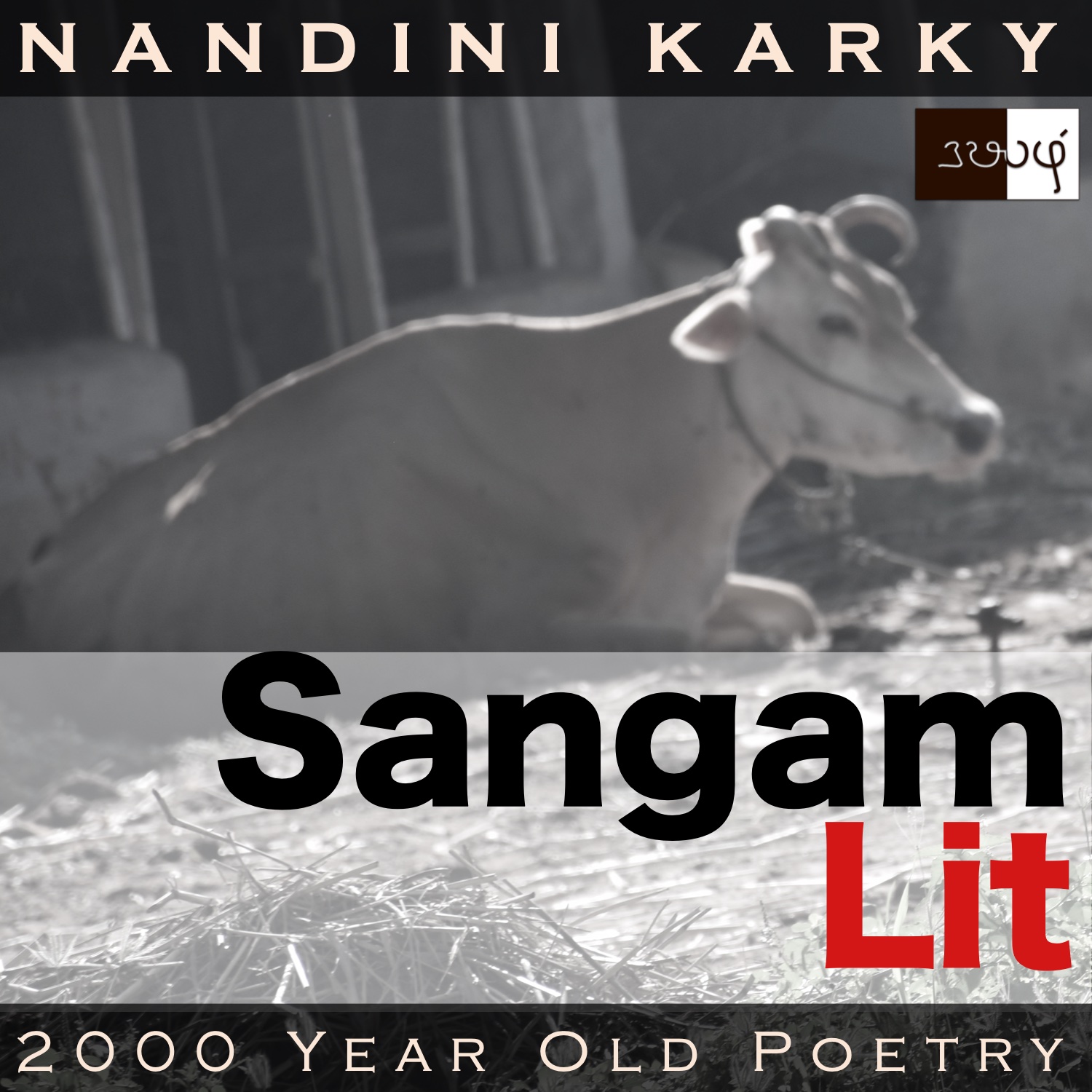Podcast: Play in new window | Download
Subscribe: Apple Podcasts | Spotify | Amazon Music | Android | iHeartRadio | TuneIn | RSS | More

In this episode, we perceive the loneliness of a lovelorn lady on a winter’s night, as depicted in Sangam Literary work, Kurunthogai 86, penned by Vennkotranaar. Set in the mountains of ‘Kurunji’, the verse speaks in the voice of the lady to the confidante, expressing her feelings as the man continues to stay away.
சிறை பனி உடைந்த சேயரி மழைக் கண்
பொறை அரு நோயொடு புலம்பு அலைக் கலங்கி,
பிறரும் கேட்குநர் உளர்கொல்?-உறை சிறந்து,
ஊதை தூற்றும் கூதிர் யாமத்து,
ஆன் நுளம்பு உலம்புதொறு உளம்பும்
நா நவில் கொடு மணி நல்கூர் குரலே.
Teardrops and raindrops soak this song! The opening phrase ‘சிறை பனி உடைந்த’ meaning ‘tears that were held back, breaking free’ talks about that poignant moment of sorrow breaking barriers of self-control. In ‘மழைக் கண்’, we observe the familiar expression for a lady’s eyes, symbolising it as the much adored ‘rain’. ‘பொறை அரு நோயொடு’ then talks about the ‘disease that’s impossible to bear’ and knowing Sangam folks, we can vouch they are speaking about the affliction called ‘love’. A question can be heard in ‘பிறரும் கேட்குநர் உளர்கொல்’ meaning ‘Is there anyone else to hear this?’ and signifies the central thought in this verse. We get a glimpse of weather conditions in ‘உறை சிறந்து’ meaning ‘filled with raindrops’, ‘ஊதை தூற்றும்’ meaning ‘cold winds blow’ and finally, the exact season in ‘கூதிர்’ or ‘winter’, falling in the Tamil months of ‘Aippasi – Kaarthikkai’, corresponding to the period around October and November months. Insect life greets us in ‘ஆன் நுளம்பு’ talking about ‘cattle flies’, those pesky creatures that keep buzzing around cattle at rest. Ending with the words ‘நா நவில் கொடு மணி நல்கூர் குரலே’ meaning ‘the soft sound of the harsh bell’s tongue’, the verse makes us wonder how something can be ‘soft’ and ‘harsh’ at the same time!
Tears breaking free and rain sprinkling about seem to hold within a melancholic tale! The context reveals that the man and lady had been leading a love relationship when the man parted away to gather wealth for their wedding. Seeing her friend languishing in the man’s absence, her confidante tries to comfort her. To the confidante, the lady says, “Other than the one with rain-like eyes, wherein held-back tears break free, suffering with a difficult-to-bear affliction and tormented by loneliness, is there anyone who is there to listen? In the winter night, when cold winds blow, brimming with rain drops, as a gnat buzzes around a cow, it shakes its head, and the bell’s tongue echoes aloud cruelly. Is there anyone else to listen to this soft sound?” With these words, the lady talks about how she’s the only one suffering so, on that night, alone and away from the man!
The only one suffering? Could it be true, at any point of time? The lady starts by talking about her own eyes, red-lined and rain-like, unable to bear and shedding tears. She mentions how she finds her heart soaked in an impossible love affliction and tortured by loneliness just then. But, what has made her cry and suffer so? As if offering an explanation, the lady points to the dark night out of her window. It’s winter and the winds that blow are full of moisture, just like her eyes. These are the perfect conditions for flies to be buzzing around cattle and those gentle animals, disturbed in their sleep, shake their heads, making the bells around their heads echo aloud. That bell sound seems to have been the cue for the lady’s eyes to shed their tears and she looks around to her friend and asks, could there be anyone else, who is there to hear that severe sound of the soft bells?
It’s but a gentle sound and yet, it seems to have the power to agonise the lady so, and that’s why she calls the bell sounds as ‘harsh’! Coming to the lady’s question about whether there could be anyone else other than her, suffering so, isn’t it a characteristic feature of sorrow to make our minds think that we are alone in our pain? Perhaps, the lady cannot realise that, at some distance, is another lady pining just like her, or a man wishing to be with the one he loves! Let alone this lady, who lived two thousand years ago, do we, with all our modern understanding of the world, know the right way to deal with a moment of sorrow?




Share your thoughts...